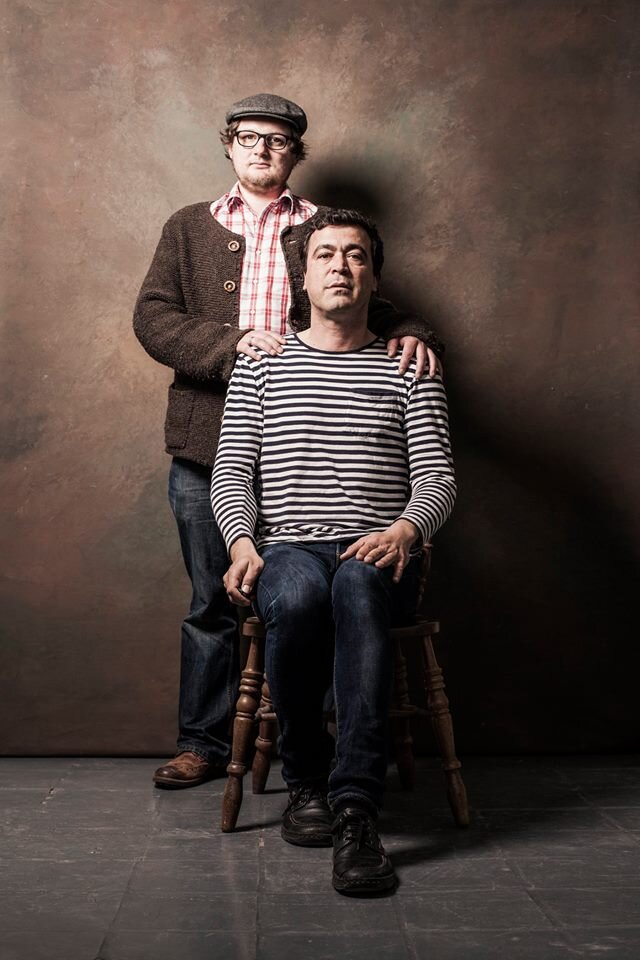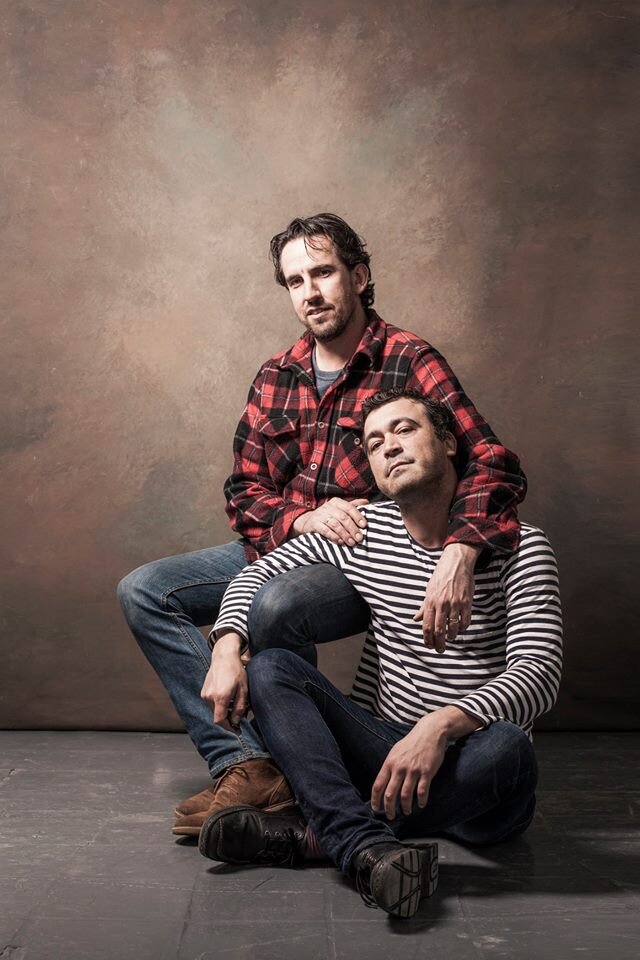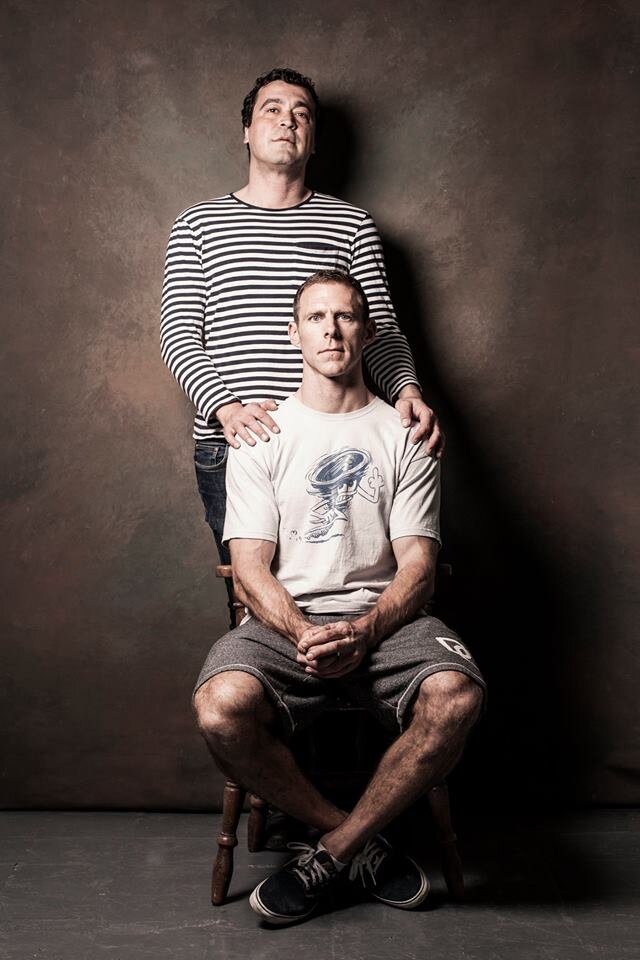Adopting a Father
‘Adoptig a father’ is a fictional news of Cinarel’s artistic desires presented with News reporter. In the video, presenters giving news about the artist new project in the style of BBC news.
























ADOPTING A FATHER: A commentary
Adopting a Father is to put into question the concept of the normal parental role. It is not only a reversal of role but also expresses dissatisfaction with the existing birth father. Furthermore this is the action of self-authorisation that only an adult who is no longer dependent on parental care and authority is in a position to carry out. Provocation or invitation, the title invites both positions as sites to explore how we might make sense of ourselves when confronted with a father who disappointed us but more painfully we know we are disappointment to him
Adoption is a process where a child is removed from their birth parents and placed permanently with new parents. The reason for this dramatic change in a child’s life is mostly because the birth parents are viewed as unfit to parent and potentially damaging to the child’s physical and emotional wellbeing. The new parents are subject to lengthy assessments in order to establish that they will be fit parents for the child. Fit in short hand means normal, in other words not child abusers, not addicts, not utterly neglectful and unreliable. The new parents will offer the child a secure and loving home, a normal home. The idea that only parents who physically and psychologically abuse their children do damage to them is a limited perspective; in fact in psychoanalytic thinking and also evidenced in psychiatry, over attentive parents can go so far as to cause psychosis in their children. So it is not too little but too much love that can also be damaging to psychic wellbeing.
It is well known in psychoanalytic circles that Freud wrote a paper touching upon this subject called The Family Romance. It is unsurprisingly a paper also referred to in the field of adoption. What it explores is a common childhood phantasy that children believe they do not really come from the family they are in, but another family where they really belong and from whom they have been taken away. They feel they just do not belong in their own family, that they are strangers from another family, a place often much better than where they are. This phantasy family has status and offers a privileged position and special place of importance to the child. What this speaks to is complex, but it is an expression of dissatisfaction about feeling misrecognised, mistreated and ignored. Clearly this is a narcissistic phantasy but it is one of great complexity, it is one which addresses the sense of isolation and alienation felt in childhood, it is one that many people would be ashamed to admit to as it is about a criticism of parental love and rivalrous feelings towards brothers and sisters. These are dangerous ideas to harbour in the close knit life of the nuclear family; a danger like this is frequently repressed to the site of unconsciousness, to the site of childhood amnesia.
When the helpless dependence of childhood is outgrown the adult as an autonomous being is in a position to make her own decisions, including how they relate to family ties. However by the time adult hood is reached the dependence and serfdom of childhood has already shaped who we are and how we form and conduct our relationships with others. One of the most foundational aspects of this childhood resides in the particularity of our family relations, how we are loved and treated and how these are saturated with the expectations our parents have both conscious and unconscious around our gender. The question we can see being raised in Ilkers work is the nature of these gendered family relations, the forms that love takes within the family and the effects they have on who we take ourselves to be. For example what would it be like for a girl child parented by a father who was disappointed in her because he wanted a boy? What would it be like for a child to be borne to a mother who hated the father for making her pregnant? What effect would a father have upon his son if he was insecure about his own masculinity, what expectations would be placed upon the son to compensate for the fathers gender insecurity? How do these very problematic conflicts get played out in the process of parenting , how does the child understand them , decode them if they are denied or for that matter the parent tells them they are not wanted or should have been a boy?
Ilker’s work presents the field of parental desire, its failures, disappointments and longings, circulating as a force field buried in the everyday acts of parental love. Ilker’s work helps us ask questions about the effects of the parental field on our gendered identity. The bewildered infant lives in an environment of confusion, conflicted desire and contradiction where the parents say one thing and do another, where there will be no answers to his or her questions to end this uncertainty. Looking back on the example of the father who has an insecure relation to his masculinity one could speculate not only on how this would be manifested in the father but also on the expectations the father would have for the son. A son who is burdened with the task of propping up his father’s unstable masculinity, perhaps becuase the father may feared he is homosexual or wished he had followed that route in his own life. Such a desire would be a continous threat to his idea of manliness and potency and an anathema for his son. However nothing transmits more powerfully than a repressed desire. Driven by a relentless anxiety whatever form it takes. The son has to try to make sense of his the father, what does he want? A question the father himself cannot answer or make sense of but for the son is fundamental if he is to gain the love of his father. If I do for father what he most desires for himself he will certainly love me. Whatever sense the son makes of his father’s desires, they may not be what the father consciously said he wanted. The son as a young man could to take the route of hyper macho man, a high achiever in business, an inveterate woman user, alternatively a meek man who seeks out a place where there is a minimal demand to be manly this could be to be attracted to certain kinds of female partnerships, a reclusive life style or possibly homosexuality. It could be a man who is violent towards women to prove his masculinity is not to be doubted.
The proposition Ilker puts before us is one which suggests all is not well in the normal biological family unit, no surprises there, but he is clearly focused in this instance on the failure of the father. To adopt another father one which is not your biological father is to suggest that the adopted figure is one which has been subject to conscious idealisation. This is then an act of choosing the form of masculinity which offers an alternative site for the daily performance of masculinity. Perhaps a place where there is a sense or recognition for the anxiety of not knowing rather than its suppression and mastery in the curious masquerades offered to you by your own father.
The instability structuring male subjectivity has become an increasingly theorised field since it was first brought into doubt within early psychoanalytic writing, that gender is not simply a matter of biology but also a socially determined and profoundly psychological event. What is natural is no longer given over to nature. It is little wonder then that looking for alternative fathers particularly if you are a man, becomes a project about alternative masculinity’s. The emergence of the bromate is a register of recent manifestation for dissatisfaction, with the notion of male relations. The softer less rigidly gendered metrosexual male and the notion of the new man again signal a desire for a different site in which=h to be a man.
However masculinity is not simply a question of taking on new and different roles by men. What marks a man’s gender is not what he does nor for that matter his sexual relations, biology and gender should not be conflated here. Famously the tale of masculinity is located in the violent and desperate myth of Oedipus. In order to remove the curse that plagued the city of Thebes Oedipus had to solve the riddle of the sphinx, which as we know was man. The riddle describes man in three different modes of being in the world, crawling as a baby on all fours, walking on two legs as an as adult and using a walking stick in old age. The multiple images that ilker’s works and reworks draw our attention to these three different ways of being a man and of rethinking masculinity.
Thebes is cursed because Oedipus killed his father and married his mother. The law of the father states clearly that you can have any women you like except the one you want who is mine. Ilker wants to question the oedipal myths account of how we acquire masculinity. He focusses on the different modes of being a man, relocating our focus away from the violent possession of the woman as the primary way to secure a male identity. Ilker proposes there are many ways of being a man and that the oedipal assurance of masculinity is the biggest myth of them all. This idea has been with psychoanalysis since its emergence one hundred years ago. There are many ways of performing masculinity which depart from stereotypes on offer, to depart from them is to take a risk but at least you are not fooled into thinking that with enough effort you can securer masculinity as a personal possession. It was never there as an object in the world that could be secured in the first place.
The role of the father as the transmitter of male identity is under scrutiny in this work. We need a new myth and Ilker proposes that the sphinx could offer a possibility. The sphinx is part bird, part animal and part woman, a creature of hybridity that enigmatically but resolutely poses a riddle in place of identity. Man is the name of a creature hopelessly marked by its own organs the very site of violence out of which its identity is borne. Oedipus when he could see was blind to himself, he blinded himself only at the very moment he could see himself, what he saw he never wanted to see again. However, Oedipus is not the main character to look for in this work, this is not a son killing his father to take his place. To adopt a father does not mean killing off your own but to find ways of being out side of the violence which inscribes male identity, a place which is a riddle that can refuse the identifiable.
Ilric Shetland
April 2015